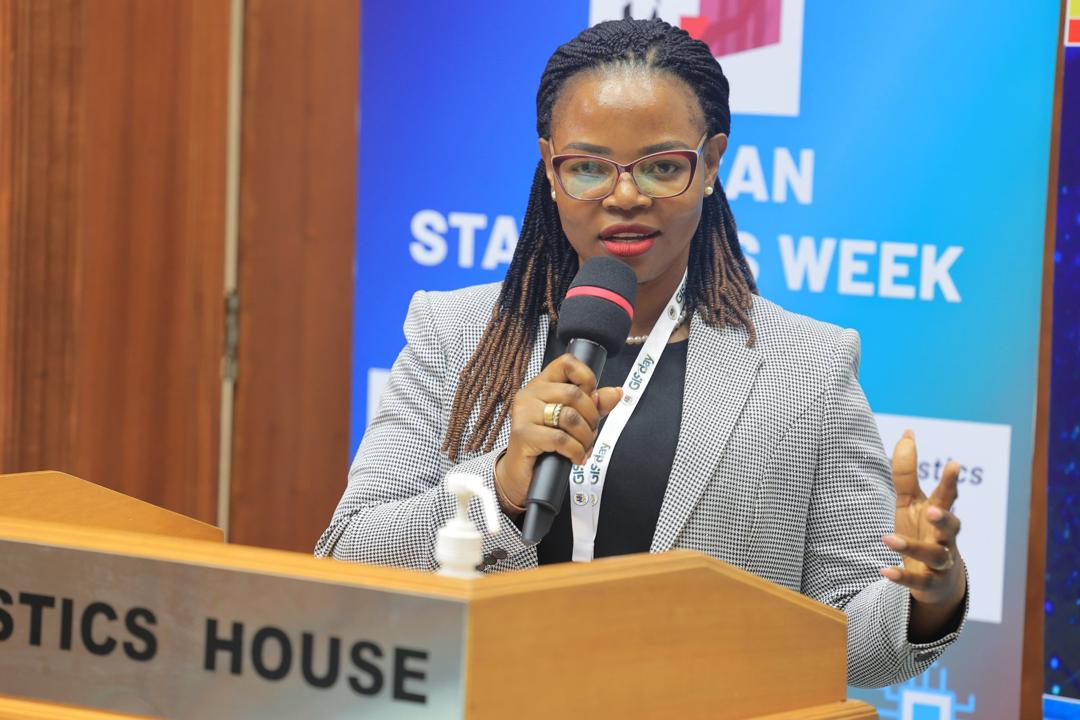Uganda joined the rest of the world in commemorating Geographic Information Systems (GIS) Day 2025, bringing together experts, government agencies, innovators and development partners to spotlight the transformative role of geospatial technologies in national development.
The event underscored the importance of GIS in climate action, urban planning, emergency response, environmental conservation, and modern data-driven governance.
Speaking on behalf of the Uganda Bureau of Statistics (UBOS) Executive Director, Hellen Nviiri, highlighted how digital mapping tools have significantly modernised the country’s data collection and management systems.
“GIS digital systems have made data collection easy through digital maps,” she said, noting that geospatial technologies are now central to national statistics, planning, and service delivery.
Delivering the keynote address, Flavia Zabali Musisi from the Kampala Capital City Authority (KCCA) emphasised the need for location-based decision-making across all sectors.
“We must answer the ‘WHERE’ question in every divide, for it is the source of all solutions. This can only be addressed through GIS and spatial technologies,” she said.
Musisi revealed that KCCA’s adoption of GIS tools—including satellite imagery and zoning plans—to map taxable properties has significantly boosted local revenue collection.
“Our collections jumped from Shs 17 billion to Shs 64 billion in just eight years,” she said, adding that similar technologies were instrumental in mapping and tracking COVID-19 cases, ultimately helping save lives.
From the Ministry of Water and Environment, Derrick Rukundo stressed the rising importance of geospatial data in unlocking global climate financing.
“In modern climate financing, spatial data is the currency. Every tonne of CO₂e claimed must be tied to a geo-location. No country can receive a dollar of climate finance without spatial proof,” he said.
The event also showcased innovations that merge GIS and artificial intelligence to support environmental sustainability.
Immaculate Asimwe of Women in GIS Uganda highlighted the global waste crisis, noting that the world generates 2.01 billion tonnes of municipal solid waste annually, with only 9% recycled.
“We are 91% away from a circular economy,” she said, calling for data-driven waste management and smarter urban systems.
Community environmental activist Twesige Racheal Kirungi demonstrated how digital mapping empowers citizens to hold authorities accountable. Through visual mapping tools, communities can now track waste mismanagement more effectively and “raise alarm” where necessary, improving responsiveness from local governments.
Deforestation also took centre stage. Uganda has lost over 2.4 million hectares of forest cover in just 25 years—an average of 90,000 hectares per year. Aminah Mayole of Aqua Wood showcased an advanced deforestation tracker integrated into the Aquawood App.
The system provides “automated detection and deforestation alerts using advanced satellite imaging,” supporting efforts to curb illegal logging and enhance forest restoration monitoring.
In the agriculture sector, GIS and machine learning are redefining prediction and planning. Tasia Lydia, a geospatial data analyst with One Acre Fund, explained that satellite-powered models now achieve remarkable accuracy in forecasting crop yields.
Through spatial analytics, One Acre Fund can “identify farmers likely to record low yields,” enabling better planning for compensation and targeted farmer support.
The Uganda Red Cross Society (URCS) also highlighted its growing use of geospatial tools in humanitarian response. According to URCS representative Joel Kitutu, drones and real-time spatial data have strengthened the agency’s ability to prepare for and respond to disasters, especially in high-risk communities.
As Uganda accelerates its digital transformation agenda, GIS Day 2025 reaffirmed the country’s commitment to harnessing geospatial technology for inclusive development, environmental sustainability, and climate resilience.


